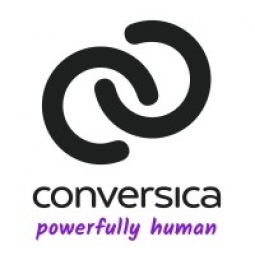Technology Category
- Infrastructure as a Service (IaaS) - Virtual Private Cloud
- Sensors - Autonomous Driving Sensors
Applicable Industries
- Automotive
- Cement
Applicable Functions
- Sales & Marketing
Use Cases
- Smart Parking
- Vehicle-to-Infrastructure
About The Customer
Stivers Ford Lincoln is a family-owned and operated dealership based in Montgomery, Alabama. Despite having a smaller inventory compared to mega-dealers, the dealership has been serving communities in the Montgomery area and beyond. The dealership was looking to boost sales during a period when many consumers were cutting back on big-ticket purchases like cars. They were also struggling with the challenge of efficiently pursuing and nurturing leads, especially with the increasing number of car shoppers requesting quotes online. The dealership was keen on delivering a customer experience that would convert one-time buyers into lifetime customers.
The Challenge
Stivers Ford Lincoln, a family-owned dealership in Montgomery, Alabama, was facing a significant challenge in improving sales and lead qualification. The dealership was struggling to boost sales during a period when consumers were cutting back on big-ticket purchases like cars. With a small inventory compared to mega-dealers, Stivers needed to work smarter, pursue leads more efficiently, and deliver a customer experience that would convert one-time buyers into lifetime customers. However, with an increasing number of car shoppers requesting quotes online, the Business Development Center (BDC) at Stivers found it challenging to manually capture and nurture these leads until the prospect was ready to speak with a salesperson. The old model of simply adding more people to the BDC was not working, leading to many dead deals.
The Solution
The solution came in the form of an AI Automated Sales Assistant named Eva, powered by Conversica. Eva was designed to respond to online queries from prospects using a casual, friendly approach. Her role was not to sell cars, but to convert queries into qualified leads by conversing through email with prospective customers over a series of days or weeks until they were ready to talk with a Stivers salesperson. Eva's AI technology allowed her to recognize what the prospect was looking for, answer questions, provide further information, gauge the prospect's interest, secure the best number and time for them to speak, and then pass them on to a member of the Stivers sales staff. Eva worked all day and all night, never got sick or distracted, and never had a problem staying motivated. This made it easy to justify the cost of deploying Conversica.
Operational Impact
Quantitative Benefit

Case Study missing?
Start adding your own!
Register with your work email and create a new case study profile for your business.
Related Case Studies.

Case Study
System 800xA at Indian Cement Plants
Chettinad Cement recognized that further efficiencies could be achieved in its cement manufacturing process. It looked to investing in comprehensive operational and control technologies to manage and derive productivity and energy efficiency gains from the assets on Line 2, their second plant in India.

Case Study
Integral Plant Maintenance
Mercedes-Benz and his partner GAZ chose Siemens to be its maintenance partner at a new engine plant in Yaroslavl, Russia. The new plant offers a capacity to manufacture diesel engines for the Russian market, for locally produced Sprinter Classic. In addition to engines for the local market, the Yaroslavl plant will also produce spare parts. Mercedes-Benz Russia and his partner needed a service partner in order to ensure the operation of these lines in a maintenance partnership arrangement. The challenges included coordinating the entire maintenance management operation, in particular inspections, corrective and predictive maintenance activities, and the optimizing spare parts management. Siemens developed a customized maintenance solution that includes all electronic and mechanical maintenance activities (Integral Plant Maintenance).

Case Study
Monitoring of Pressure Pumps in Automotive Industry
A large German/American producer of auto parts uses high-pressure pumps to deburr machined parts as a part of its production and quality check process. They decided to monitor these pumps to make sure they work properly and that they can see any indications leading to a potential failure before it affects their process.










